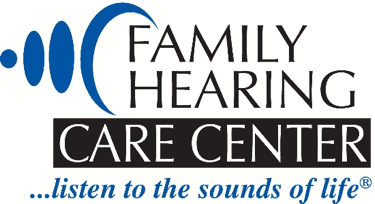
Knowing Your Rights When It Comes to Hearing Loss
Hearing loss affects millions of people worldwide, impacting their ability to communicate and engage with others. If you or someone you love is dealing with hearing loss, it’s crucial to understand your rights. These rights cover access to hearing health exams, hearing aids, and accommodations in various settings. Knowing your rights can help you navigate challenges and ensure you receive the support and resources you need to live a fulfilling life despite hearing loss.
A hearing health exam is the first step in identifying and addressing hearing loss. It involves a comprehensive evaluation by a provider to determine the type and extent of your hearing loss. Everyone has the right to seek a hearing health exam if they suspect that their hearing is deteriorating.
If you’re unsure whether you need a hearing health exam, consider these common signs of hearing loss:
- Asking people to repeat themselves often
- Finding it difficult to follow conversations, especially in noisy environments
- Turning up the volume on the TV or radio to a level that seems too loud for others
- Missing phone calls or other auditory cues
If you notice any of these signs, it’s your right to consult with a provider for a hearing health exam. Early detection can lead to more effective management of hearing loss, so don’t hesitate to seek professional advice.
The Right to Hearing Aids and Assistive Devices
Following a hearing health exam, you might be recommended to use hearing aids or other assistive devices to improve your hearing. These devices can make a significant difference in your ability to communicate and engage in social activities. It’s your right to choose the hearing aids that best suit your needs and preferences.
In the past, hearing aids were expensive and not always covered by insurance. However, there have been changes in healthcare regulations and insurance policies that can make hearing aids more accessible. It’s important to know your rights regarding insurance coverage and financial assistance. Check with your insurance provider to understand what is covered, and ask your provider about financing options or discount programs that can make hearing aids more affordable.
Your Rights in the Workplace
Hearing loss can affect your ability to work, but you have rights under the Americans with Disabilities Act (ADA) in the United States and similar laws in other countries. These laws ensure that people with disabilities, including those with hearing loss, have access to reasonable accommodations in the workplace. This means your employer must provide the tools and support you need to perform your job effectively.
Reasonable accommodations for hearing loss in the workplace can include:
- Providing amplified phones or text-based communication tools
- Installing visual alerts for fire alarms and other safety systems
- Offering flexible work arrangements to accommodate your needs
- Allowing the use of hearing aids or assistive devices during work hours
If you believe your workplace isn’t providing the accommodations you need, it’s your right to request them. Communicate your needs clearly and work with your employer to find solutions that work for both of you. If you face resistance, you can seek legal advice or contact a disability rights organization for support.
Rights in Educational Settings
Students with hearing loss have rights to accommodations in educational settings, from K-12 schools to colleges and universities. Educational institutions must ensure that students with disabilities can access learning materials and participate in class activities without discrimination.
Accommodations in educational settings for hearing loss may include:
- Providing sign language interpreters or real-time captioning
- Offering written materials to supplement oral instructions
- Allowing the use of hearing aids or assistive listening devices in the classroom
- Providing preferential seating to ensure the student can hear clearly
If you’re a student with hearing loss or a parent of a child with hearing loss, you have the right to request these accommodations. Schools are required to work with you to create an individualized education plan (IEP) or similar document that outlines the support needed to succeed academically. If you encounter resistance, you can seek assistance from disability advocacy groups or legal counsel.
The Right to Public Accommodations
Public places, such as theaters, restaurants, and government buildings, must accommodate individuals with hearing loss under the ADA and similar laws in other countries. These laws ensure that you can access services and participate in public events without discrimination.
Examples of public accommodations for hearing loss include:
- Providing assistive listening systems in theaters and public venues
- Ensuring clear visual signage for emergency exits and other important information
- Offering written materials or text-based communication options for public services
If you find that a public place isn’t providing these accommodations, you have the right to request them. Businesses and organizations must comply with accessibility laws, and you can report non-compliance to the appropriate authorities or seek legal advice if necessary.
Hearing loss can be challenging, but knowing your rights can help you navigate the journey more confidently. Whether you’re seeking a hearing health exam, hearing aids, or accommodations in the workplace, educational settings, or public places, you have the right to support and resources that can improve your quality of life. By understanding your rights and advocating for yourself or your loved ones, you can ensure that hearing loss doesn’t hold you back!
